|
Books Should Be Free Loyal Books Free Public Domain Audiobooks & eBook Downloads |
|
|
Books Should Be Free Loyal Books Free Public Domain Audiobooks & eBook Downloads |
|
Top Authors |
|---|
|
Book type:
Sort by:
|
By: William Godwin (1756-1836) | |
|---|---|
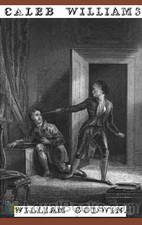 Caleb Williams or Things As They Are
Caleb Williams or Things As They Are
The novel describes the downfall of Ferdinando Falkland, a British squire, and his attempts to ruin and destroy the life of Caleb Williams, a poor but ambitious young man that Falkland hires as his personal secretary. Caleb accidentally discovers a terrible secret in his master’s past. Though Caleb promises to be bound to silence, Falkland, irrationally attached (in Godwin’s view) to ideas of social status and inborn virtue, cannot bear that his servant should possibly have power over him, and sets out to use various means–unfair trials, imprisonment, pursuit, to make sure that the information of which Caleb is the bearer will never be revealed... | |
By: Gilbert Parker (1862-1932) | |
|---|---|
 The Right of Way
The Right of Way
Charley Steele is a successful and brilliant Canadian lawyer. He has a nagging wife, Kathleen, and a lazy brother-in- law, Billy. In spite of his success, he is disillusioned with his life, drinks too much, and is deeply troubled by his agnosticism which leads to trouble and confusion. When Billy embezzles money, Charley discovers the theft and sets out to make things right. Charley however, ends up in a waterfront saloon where he encounters a barroom brawl and becomes unconscious. Charley loses his memory and ends up in the Canadian Northwoods where he falls in love with a pretty postmistress, Rosalie... | |
 Seats of The Mighty
Seats of The Mighty
| |
By: United States Federal Bureau of Investigation | |
|---|---|
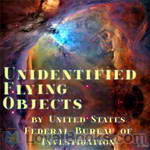 Unidentified Flying Objects
Unidentified Flying Objects
Through the U.S. Freedom of Information Act (FOIA) this series of communications has been de-classified and made public. Most names have been omitted, however much information of the sightings of UFOs in 1947 can be gleaned from these communications which were primarily between the FBI and other U.S. Government and military organizations. | |
By: Sarah Morgan Dawson (1842-1909) | |
|---|---|
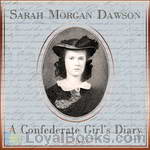 A Confederate Girl's Diary
A Confederate Girl's Diary
Sarah Morgan Dawson was a young woman of 20 living in Baton Rouge, Louisiana, when she began this diary. The American Civil War was raging. Though at first the conflict seemed far away, it would eventually be brought home to her in very personal terms. Her family's loyalties were divided. Sarah's father, though he disapproved of secession, declared for the South when Louisiana left the Union. Her eldest brother, who became the family patriarch when his father died in 1861, was for the Union, though he refused to take up arms against his fellow Southerners... | |
By: William Worthington Fowler (1833-1881) | |
|---|---|
 Woman on the American Frontier
Woman on the American Frontier
Many books describe the role of men during American history. However, at the same time, women did much: comforted, fought, helped, raised children, and much more. This book is full of mini-biographies of women in many places, and many ages- each chapter telling about a different subject. | |
By: Alfred de Musset (1810-1857) | |
|---|---|
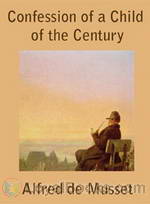 The Confession of a Child of the Century
The Confession of a Child of the Century
In this autobiographic novel, an aging man reflects on his past. We are witness to the relationships he has along the way, his mistakes, and finally- in the most unexpected and honorable way- the sudden developement of his belief in god. | |
By: James C. Philip (1873-1941) | |
|---|---|
 The Romance of Modern Chemistry
The Romance of Modern Chemistry
A fascinating look back at the state of the art of chemistry 100 years ago, this book by James C. Philip, PhD, an assistant professor of chemistry at The Imperial College of Science and Technology, Kensington, provides a "description in non-technical language of the diverse and wonderful way which chemical forces are at work, and their manifold application in modern life" in 1910. Professor Philip relates many of the key chemical discoveries of early academic researchers in the context of the practical uses to which these discoveries were applied in the early 20th century. | |
By: Mildred Duff (1860-1932) | |
|---|---|
 The Bible in Its Making - The Most Wonderful Book in the World
The Bible in Its Making - The Most Wonderful Book in the World
One great universal law runs through the realm of nature. Our Saviour gave it in a sentence: 'First the blade, then the ear, after that the full corn in the ear.' It is with the desire to show that the same law rules in another of God's creations — The Bible — that this little volume has been prepared. The Bible has as literally 'grown' as has an oak tree; and probably there is no more likeness between the Bible as we know it to-day and its earliest beginning, than we find between the mighty tree, and the acorn from which it sprang... | |
By: George Edward Moore | |
|---|---|
 Principia Ethica
Principia Ethica
George Edward Moore, usually known as G. E. Moore, (1873 – 1958) was a distinguished and influential English philosopher. He was, with Bertrand Russell, Ludwig Wittgenstein, and (before them) Gottlob Frege, one of the founders of the analytic tradition in philosophy. Principia Ethica is one of the standard texts of modern ethics. | |
By: John Casper Branner | |
|---|---|
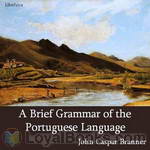 A Brief Grammar of the Portuguese Language
A Brief Grammar of the Portuguese Language
Dr. Branner was a recognized authority on the geology of South American republics, especially Brazil, having organized and headed the Stanford Expedition to Brazil in 1911, among others. In 1910 he published this "little book", as the author himself calls it, for the use of English-speaking students who needed a fast and practical way of learning Portuguese. Contrary to the belief of many back then, John C. Branner claims that Brazilian Portuguese isn't "badly spoken Portuguese", and, even though using examples from both Portuguese and Brazilian writers, seems to give more proeminence to Brazilian Portuguese. | |
By: Benjamin Disraeli (1804-1881) | |
|---|---|
 Henrietta Temple
Henrietta Temple
The Armine family, in particular the young Ferdinand Armine, is in great financial difficulties. Ferdinand's grandfather has burdened the family estate with large debts, which his father did not manage to diminish. Ferdinand himself is not disposed to live with his small income alone, and during his time in Malta with his regiment, he incurs debts of his own. The only thing that can easily pay for his debts and restore the house of Armine now is for Ferdinand to marry well, and the chosen wife for him is his cousin Katherine, the heiress to their grandfather's wealth... | |
By: Romain Rolland (1866-1944) | |
|---|---|
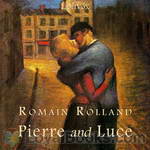 Pierre and Luce
Pierre and Luce
Pierre and Luce were an unlikely young pair who found themselves in the chaos of Paris during the war; Pierre, the shy, recently conscripted pacifist, and Luce, the free spirited artist in training, and both confused about the things going on around them. Why were these war birds flying overhead? Why these warning sirens, and occasional bombs exploding in the distance? Why did the government leaders, who didn't even know one another, hate and destroy so much? Why did these two delicate young adults find each other now? This story takes place between January 30 and Good Friday, May 29, 1918. (Introduction by Roger Melin) | |
By: Oliver Herford (1863-1935) | |
|---|---|
 This Giddy Globe
This Giddy Globe
Is there a genre called FUN? Yes, and this is it! Insanely humorous geography that will have you rolling on the floor laughing with your sides hurting. | |
 Kitten's Garden of Verses
Kitten's Garden of Verses
The Kitten's Garden of Verses is a book of short poetry, modeled after Robert Louis Stevenson's A Child's Garden of Verses. Of course, the poems in this book are intended for kittens rather than children! | |
By: G. S. Street (1867-1936) | |
|---|---|
 The Ghosts of Piccadilly
The Ghosts of Piccadilly
Nothing spooky or supernatural, but a very personal gathering of gossip, letters, and fragments of biography of famous people who have lived in Piccadilly (in London, England) ... and of some of the buildings, now long gone."If any part of any city deserves a book to itself, it is Piccadilly. We shall stand before some house in the hours when the traffic is stilled, and I shall tell of its history, of the men and women who dwelt there, and talked and loved and gambled and lived and died. I shall follow the lines of my temperament and tastes rather than those of completeness and impartiality: it is likely that I shall be voluble about Byron and reticent about Macaulay." (From the preface) | |
By: Grace Isabel Colbron (1869-1943) | |
|---|---|
 The Case of the Golden Bullet
The Case of the Golden Bullet
Joseph Muller, quiet mannered detective, tries to solve the mystery of a man who died in his study, by a bullet hole in the chest. But all windows and doors were locked, from the inside. | |
By: William MacLeod Raine (1871-1954) | |
|---|---|
 Yukon Trail
Yukon Trail
The Yukon Trail: A Tale of the North (filmed as The Grip of the Yukon in 1928) is an adventure yarn from the prodigious output of William MacLeod Raine, who averaged nearly two western novels a year for some 46 years. Twenty of his novels have been filmed. Though Raine was prolific, he was a slow, careful, conscientious worker, intent on accurate detail, and considered himself a craftsman rather than an artist. (Adapted from Wikipedia) | |
 Tangled Trails
Tangled Trails
The aptly titled "Tangled Trails, A Western Detective Story" takes the listener through a web of curious incidents revolving around the murder of a prominent man in Denver. Kirby Lane was quite obviously the guilty party in the murder of his uncle. Lane, among others, had had a falling out with his uncle, the victim James Cunningham. But there were some who believed his nephew to be innocent of the hideous crime. Lane feared the guilty party to be a female bronco rider whom he had befriended, as her presence at the scene of the crime was quite evident, albeit only to him... | |
By: Tobias Smollett (1721-1771) | |
|---|---|
 Adventures of Roderick Random
Adventures of Roderick Random
I am Roderick Random. This is the contemporary story of my struggle against the adversity of orphan-hood, poverty, press gangs, bloody duels, rival fortune hunters, and the challenge to be well-dressed through it all. In the course of recounting my adventures to you, dear reader, I will give you a front row seat to the characters of English eighteenth century life including highway robbers, womanizing monks, debt-laden gallants, lecherous corrupt officials, effeminate sea captains, bloodthirsty surgeons, and my dear friend Miss Williams, a reformed prostitute... | |
By: William Hanford Edwards | |
|---|---|
 Football Days: Memories of the Game and of the Men behind the Ball
Football Days: Memories of the Game and of the Men behind the Ball
A book reminiscent of the days when football was gaining popularity in America by MHAIJH85 | |
By: Mary Macleod (?/?) | |
|---|---|
 Stories from the Faerie Queene
Stories from the Faerie Queene
"The object of this volume is to excite interest in one of the greatest poems of English literature, which for all its greatness is but little read and known--to excite this interest not only in young persons who are not yet able to read "The Faerie Queene," with its archaisms of language, its distant ways and habits of life and thought, its exquisite melodies that only a cultivated ear can catch and appreciate, but also in adults." (From the Author's introduction) | |
By: Anne Catherine Emmerich (1774-1824) | |
|---|---|
 The Nativity of our Lord Jesus Christ
The Nativity of our Lord Jesus Christ
Anne Catherine Emmerich (1774-1824) was a German Augustinian nun who had visions about Christ's life and death. This book relates her visions regarding the Blessed Virgin Mary, from her marriage to St. Joseph to the events surrounding the birth of Christ.(Introduction by Ann Boulais) | |
By: Annie Besant (1847-1933) | |
|---|---|
 Annie Besant
Annie Besant
In her autobiography, Annie Besant poignantly writes of her search for the truth of what she believed in, leaving Christianity behind to embrace Atheism, and ultimately finding her peace in Theosophy, which she became interested in after meeting Helena Blavatsky. She moved to India to better study Theosophical ideas and this is where she made her home until her death. She was a gifted orator and writer, often speaking and writing on her religious beliefs, as well as women's rights and social reform... | |
 My Path to Atheism
My Path to Atheism
My Path to Atheism is a remarkable document in many ways, not least that it was written by a woman in Victorian England, not the most open free-thinking of societies, especially for women at that time. It needed a remarkable woman to write such a revolutionary and to 19th century minds, heretical document in a society where the Church had such a stronghold. Besant herself was originally married to a clergyman, but her increasingly anti-religious views and writings led to a legal separation. She went... | |
By: Dorothy Osborne (1627-1695) | |
|---|---|
 Love Letters of Dorothy Osborne
Love Letters of Dorothy Osborne
A lively, interesting and important collection of 17th century love-letters written by an English lady, against the background of the Civil War and the Restoration | |
By: Burton E. Stevenson (1872-1962) | |
|---|---|
 That Affair at Elizabeth
That Affair at Elizabeth
A detective novel set in turn-of-the-century New York City, in which a young lawyer plays the sleuth. Packed with plot twists (and the ubiquitous romantic complication, of course). ( | |
By: Burton Egbert Stevenson (1872-1962) | |
|---|---|
 Gloved Hand
Gloved Hand
Mr. Lester, a private investigator, and his friend Godfrey are caught up in a strange case that takes them to a large estate in the country where at midnight they witness a mysterious "falling star" that appears to burst into a shower of sparks over two white robed figures standing in the air. There is a young lady in a flowing white dress and many more twists and complications before the mystery is solved. | |
 Holladay Case
Holladay Case
Stevenson's introduction of the protagonist Lester (law clerk with New York firm Graham & Royce) finds him occupying a front row seat in the murder trial of Wall Street multi-millionaire Hiram Holladay. Scandalously, suspicion points very solidly on the banker's loving daughter, Frances. Lester proves himself a useful aide to the firm's senior partner, Mr. Royce, in his attempt to prove the lovely Frances innocent. | |
 Mystery of the Boule Cabinet
Mystery of the Boule Cabinet
Three men are dead. Killed by a very powerful poison. Their deaths seem to be connected to a very old cabinet purchased in France and a notorious French criminal. What is the link? It is up to the lawyer Lester and the newspaperman Godfrey to pool their talents and solve the mystery. | |
 American Men of Action
American Men of Action
In this book, Burton Egbert Stevenson writes a brief biography of some of the most noteworthy men in American history. He begins at the very beginning of the history of America with Christopher Columbus and proceeds forward with the story of people who made America what it is today by their respective vocations. It is interesting to note that the vast majority of the subjects started in poverty and excelled financially and in stature.He makes something that could be very dull, a very readable and enjoyable book. | |
 American Men of Mind
American Men of Mind
“American Men of Mind” is a collection of short biographies of men of note in various disciplines. It is an absorbing collection of short biographies of men who made a difference in American history; most beginning life in very humble circumstances, both in the United States and in foreign countries. Although “men” is mentioned in the title, Mr. Stevenson also relates biographies of several women.This is a most interesting read.(William Tomcho) | |